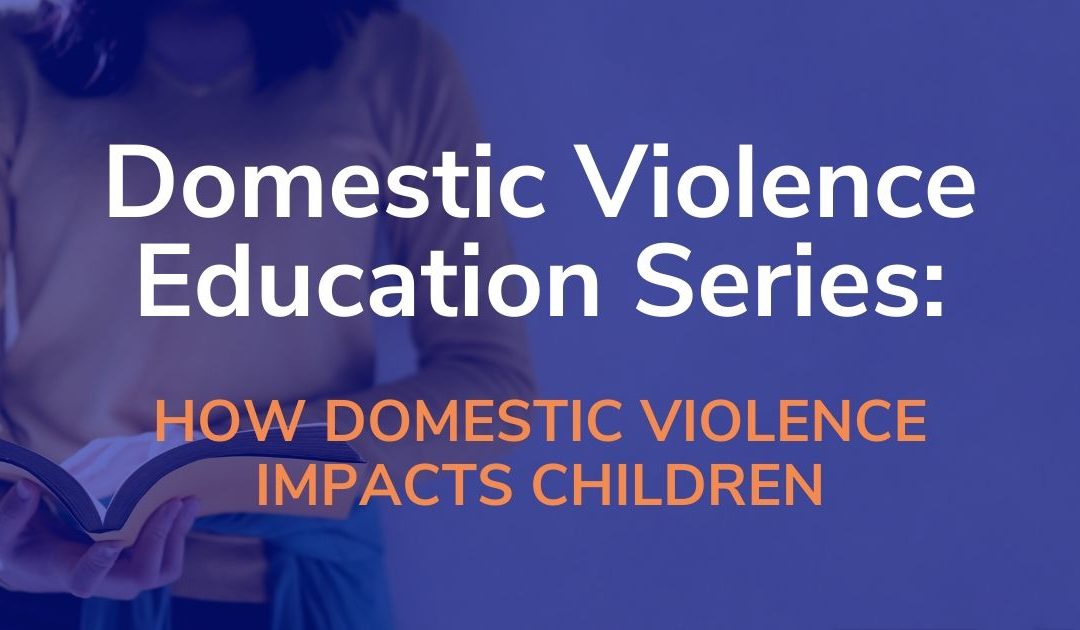How Domestic Violence Impacts Children
Resilience Case Management Team
Oftentimes we think that because our kids are so young, they don’t understand what is really going on. We may think that because the kids were in their room when the fighting started, they don’t know it’s happening. However, children see, hear, perceive and understand far more than we realize. By understanding the impact that domestic violence has on children and knowing the signs, we can help counteract some of the negative impacts witnessing abuse can have. We want to preface these notes by mentioning that all children are different in how they respond.
Possible short-term effects of children witnessing domestic violence:
-
- Generalized anxiety
- High activity levels
- Intense worry about their safety or the safety of a parent
- Difficulty concentrating
- Increased aggression
- Increased anxiety about being separated from a parent
- Sleeplessness
- Nightmares
Possible long-term effects of children witnessing domestic violence:
- Physical health problems
- Behavior problems in adolescence (e.g., juvenile delinquency, alcohol/substance abuse)
- Emotional difficulties in adulthood (e.g., depression, anxiety disorders, PTSD)
- Lower scores on measures of verbal, motor, and social skills
It can be difficult and even frustrating for parents when children exhibit these behaviors. However, it is important to differentiate the problematic behaviors from the child. Your child is not being defiant, but rather attempting to cope with past negative experiences. Understanding the source of the behaviors can help with the healing process for both parent and child.
It’s important for you to know:
Domestic violence affects more than just the victim. A parent’s relationship with their child can be deeply impacted by being in a home where there is domestic violence, even if the child did not directly witness physical abuse. Some children find the need to protect the abused parent by defending them, calling for help, or attempting to get in the middle of an escalated situation. They might take on an adult role by caring for and protecting the abused parent and any younger siblings that are present. Children may internalize their parent’s abuse, believing that it’s their fault and that they must “fix” the situation. Other children may mirror the abusive parent’s behavior and become disrespectful and aggressive towards others, including the parent that is being abused.
Witnessing abuse also impacts future relationships. Children that have been exposed to domestic violence are at a much higher risk of engaging in unhealthy relationships as an adult, either as a victim or a perpetrator. If you preach the importance of wearing a seatbelt to your children but never wear one yourself, they’ll likely grow up thinking it’s okay to drive without one. We learn from what we see. Children that are exposed to domestic violence are learning abusive and controlling traits, rather than learning what healthy relationships look like. We often hear from survivors attending our support groups that they weren’t even aware they were in an abusive relationship, because toxic and unhealthy relationships are the only experience they have had since childhood.
This does not mean that there is no hope for children who witness domestic violence. There are a few things that children need following exposure to domestic violence that will help them heal moving forward.
What Do Children Need?
A safe and secure home environment. This means having a safe place, free from violence where kids feel loved and protected.
Reassurance that there are adults who will listen to, believe, and shelter them. Children who have an adult that provides love, warmth, and attentive care cope better than those who do not. Children who are exposed to violence in the home need to know that they are not alone and that the violence is not their fault.
A sense of routine and normalcy. Violence in the home can turn a child’s world upside down. Routines such as going to school and participating in recreational activities are vital for children’s development and well-being and should be maintained as much as possible.
Supportive services to meet their needs. Resilience provides therapy for children who have been exposed to domestic violence. Therapy allows children to process their emotions in a safe place with a safe adult. Research also shows that mothers who receive support and interventions in these situations can also have benefits for children. Resilience also provides several support groups and workshops for non-offending parents/caregivers and children that have witnessed domestic violence to help understand the impact trauma has on individuals (call our Help Line for more details).
Guidance on non-violent methods for resolving conflict. Children must hear it re-affirmed that abuse is wrong. Learning conflict resolution skills and having positive role models such as teachers, social workers, friends, other relatives, and parents is important.
The importance of a parent’s relationship with their child cannot be understated. Even if in the midst of an unhealthy relationship, parents can foster a strong, healthy, nurturing relationship with their child. At Resilience, we understand the importance of these relationships as well as the impact that domestic violence has on children. We are here to support you as you navigate your healing journey and support your children as they begin to heal and grow.
For immediate support, reach out to us at:
24-Hour Help Line: 1-800-848-5991
Hablamos Español: 1-866-728-2131
Safe E-mail: GinnyP411@gmail.com
Sources:
http://www.thedvshelter.com/effects-of-domestic-violence-on-children/
http://www.thedvshelter.com/effects-of-domestic-violence-on-children/
https://www.unicef.org/media/files/BehindClosedDoors.pdf
